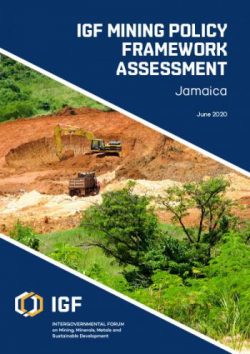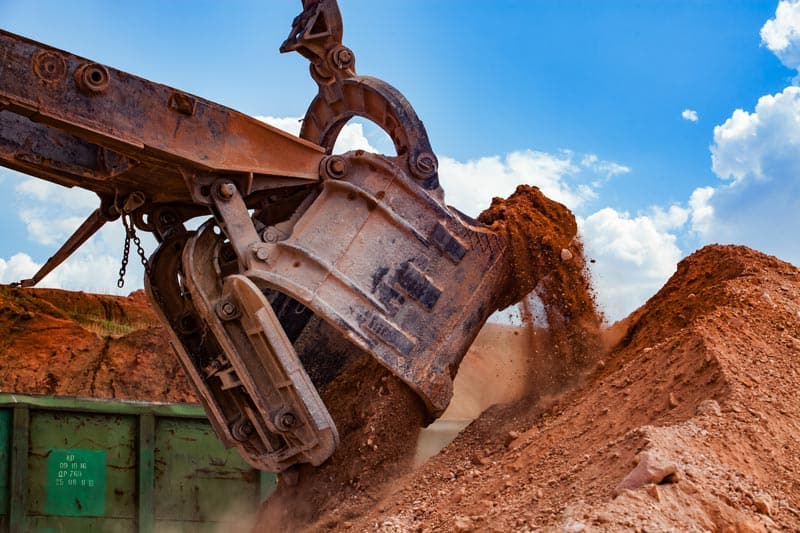 The Intergovernmental Forum in Mining, Minerals, Metals and Sustainable Development (IGF) has completed a Mining Policy Framework Assessment for the Government of Jamaica which offers specific recommendations to help the country leverage mining for sustainable development and poverty reduction.
The Intergovernmental Forum in Mining, Minerals, Metals and Sustainable Development (IGF) has completed a Mining Policy Framework Assessment for the Government of Jamaica which offers specific recommendations to help the country leverage mining for sustainable development and poverty reduction.
Bauxite mining and alumina manufacturing are crucial to Jamaica’s economy. The mining sector accounts for approximately 2.2% of its gross domestic product and employs around 6,000 workers. These mining jobs have a widespread impact; one employee’s salary from the mining industry can provide food and clothes for five people, on average.
Jamaica’s Minister of Transport and Mining, Robert Montague, says: “Mining is currently our largest foreign exchange earner, with bauxite making the biggest contribution. It has always offered employment and different forms of assistance to communities.” Furthermore, “the scope of mining is expanding. It was never just about bauxite, as many may believe, but we have several ornamental stones and various metals; and routinely, semi-precious minerals and stones are found in our rivers. There is now a budding jewellery-making industry based on this.”
“Mining can play a critical role in Jamaica’s long-term social and economic development,” says Roy Nicholson, Jamaica’s Commissioner of Mines. “A thriving mining sector in Jamaica can create government revenues, jobs, skills development, and business opportunities for local communities.”
Mining can also provide material inputs for infrastructure while supporting investment in education, health, and clean technology.
The IGF’s Mining Policy Framework Assessment identifies three areas for continued strengthening: the legal and policy framework, socioeconomic benefit optimization, and the post-mining transition. Some of the recommendations include:
Legal and policy framework
- Continue to improve the quality of public consultation throughout the mine life cycle.
- Streamline governance of the sector to increase its efficiency and simplicity.
- Expand and improve the country’s geological information base while ensuring it is publicly accessible.
Socioeconomic benefit optimization
- Strengthen local content policies related to mining.
- Strengthen community councils for improved effectiveness and expand them to include the quarry sector.
Post-mining transition
- Integrate closure and post-mining transition plans into the mine life, related management cycles, and stakeholder engagements.
- Leverage experience within the bauxite, alumina, quarry, and limestone sectors and encourage operators to establish a leadership group to address orphaned, abandoned, and legacy sites.
The IGF conducted the assessment in collaboration with the Inter-American Development Bank between November 2018 and April 2019. The assessment involved a scoping mission, an extensive review of key domestic and international laws and policies, and a week-long field visit to the country.
The IGF supports more than 75 member nations committed to leveraging mining for sustainable development to ensure negative impacts are limited and financial benefits are shared. It is devoted to optimizing the benefits of mining to achieve poverty reduction, inclusive growth, social development, and environmental stewardship. The International Institute for Sustainable Development has served as Secretariat for the IGF since October 2015. Core funding is provided by the Government of Canada.

